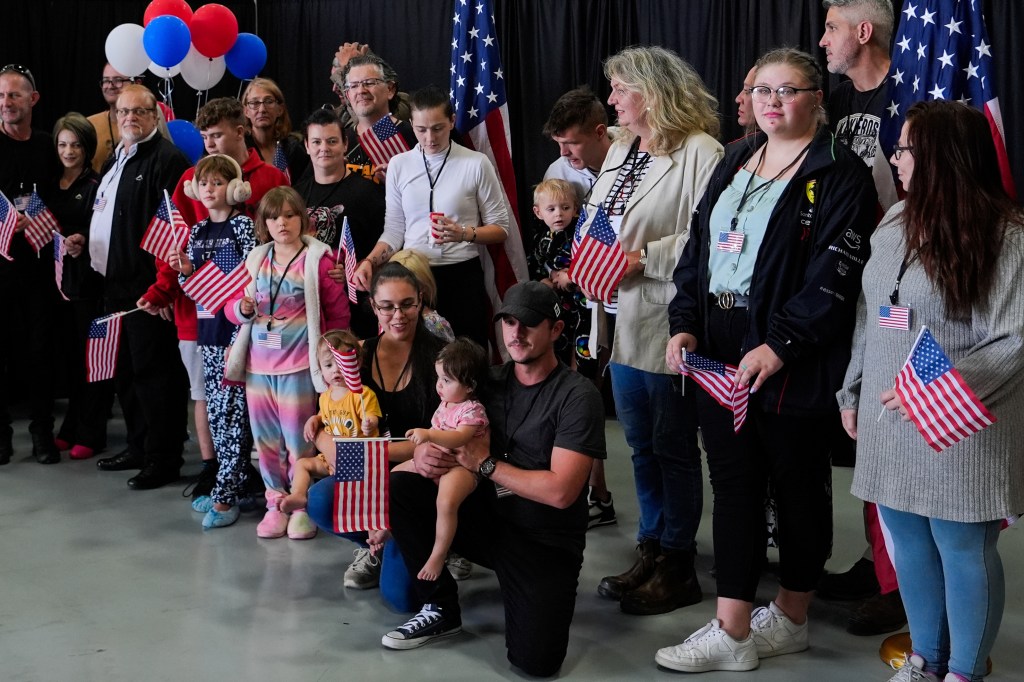Maine will receive only 50 refugees this year under record-low restrictions imposed by the Trump administration on the federal resettlement program — and all of them are expected to be white South Africans.
That’s a 95% reduction from 950 refugees initially allocated to Maine last year, and a 90% reduction from 490 refugees who actually were allowed to come here after President Donald Trump took office in January and instituted a broad freeze on foreign aid.
This is the first time white South Africans, or Afrikaners, have been resettled in Maine — a state without a significant population of white South African immigrants, said Inza Ouatarra, Maine’s refugee program coordinator.
“We call these cases ‘free’ cases because they have no anchor community here,” Ouatarra said Monday.
The Afrikaners could arrive as soon as Friday or late next week, depending on when the federal shutdown ends, Ouatarra said. Exactly where they will be settled and how long they might stay in Maine is unclear. Refugees are allowed to move elsewhere once they complete the initial 90-day resettlement process.
Ouatarra said he didn’t expect major challenges in resettling the Afrikaners, most of whom speak both Afrikaans and English. The process will be handled by Maine’s only federally approved resettlement agency, Maine Immigrant & Refugee Services in Lewiston.
Catholic Charities Maine and the Jewish Community Alliance of Southern Maine no longer operate resettlement programs, largely because of funding and refugee limits imposed by the Trump administration on their parent organizations, Ouatarra said.

In recent years, Maine has welcomed refugees from various African, Middle Eastern, South Asian and other countries. In the past two years, the largest groups have arrived from Afghanistan, Syria and the Democratic Republic of Congo, and most were settled in Lewiston, Portland and Waterville. Afrikaners were classified as refugees in February.
A refugee is someone who can show they were persecuted or feared persecution because of race, religion, nationality, political opinion or membership in a particular social group. Refugees are typically outside the U.S. when they are screened and accepted for resettlement, while asylum seekers apply when they are at a U.S. port of entry or in the country already.
In a presidential notice published Oct. 31, total refugee admissions have been capped at 7,500 for the budget year starting Oct. 1 — a 94% decrease from last year’s ceiling of 125,000 set by the Biden administration.
This is a record-low refugee admissions cap — the previous was set in 2020 during the first Trump administration, when 15,000 refugees were allowed in fiscal year 2021.
The notice states that the admissions will be allocated primarily to Afrikaners from South Africa “who are victims of unjust racial discrimination,” as well as “other victims of illegal or unjust discrimination in their respective homelands.” It names no other specific groups.
Mufalo Chitam, executive director of the Maine Immigrants’ Rights Coalition, noted that Trump administration set the cap for fiscal 2026 without receiving congressional consent as required by law. She worries that it will cause dissent and make it harder for the Afrikaners to connect with communities here.
“When you create a policy that favors a certain type of person from a certain country, you automatically isolate those people before they even arrive and pit immigrant groups against each other,” Chitam said.
In 2018, during his first term, Trump directed his secretary of state to investigate reports that the South African government was seizing land from white farmers. The South African government denied the allegation, and his rhetoric drew criticism from experts, who noted that while Afrikaners make up just 7% of the population, they still control roughly 70% of the country’s commercial farmland.
The cap doesn’t apply to relatives of former refugees who want to come to the U.S. as part of a family unification process, Ouatarra said. It does, however, affect many people in refugee camps across the globe waiting for a chance to come here, including Afghans who assisted American troops.
“Thousands of refugees are still waiting,” he said.
This story includes reporting by the Associated Press.
